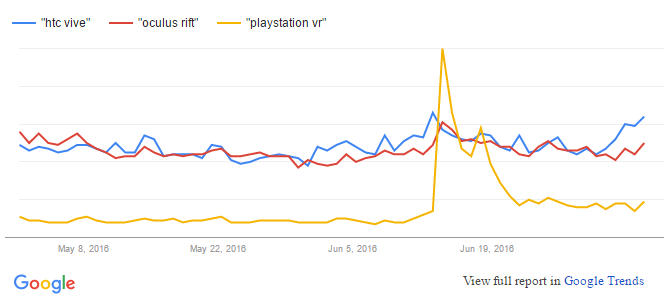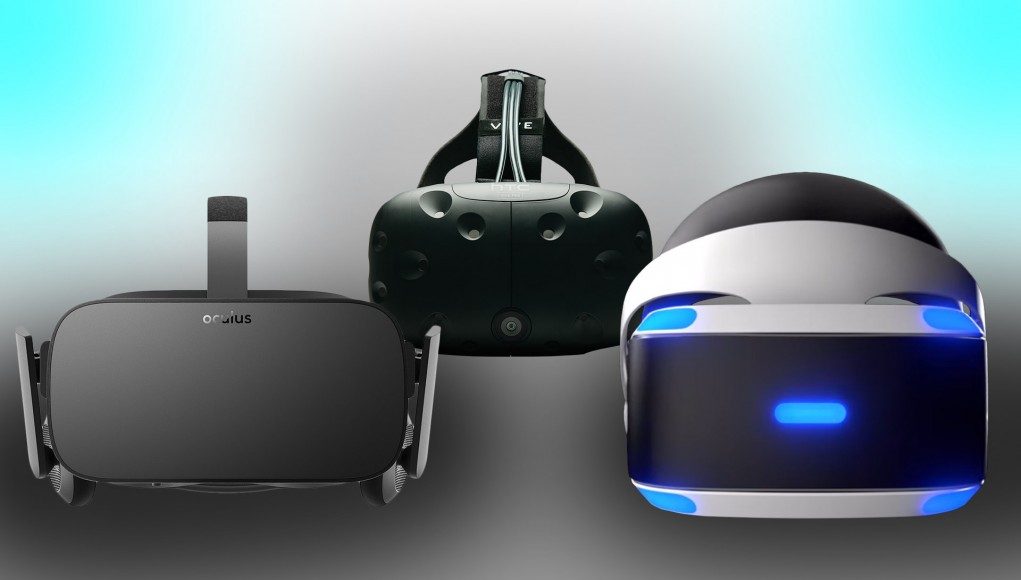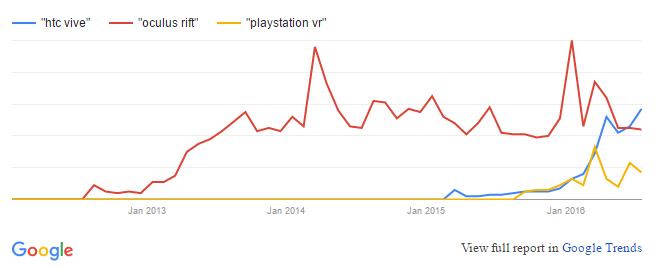When it comes to Google searches, “HTC Vive” has recently matched “Oculus Rift” and may be continuing to rise.
Google searches for “Oculus Rift” have enjoyed steady popularity since 2013 with major spikes hitting after the company’s announcement that it had been acquired by Facebook in 2014, and as the headset finally opened for pre-orders earlier this year. As it was introduced two years before PlayStation VR and three years before the HTC Vive, the name “Oculus Rift” was for a long time synonymous with “virtual reality”, in the same way that Apple’s “iPod” was for a time a layman’s term for any MP3 player. As the market matures however, serious competition for name recognition has begun.
“HTC Vive” didn’t exist as a search term until the headset’s relatively recent reveal back in early 2015. For the first year or so of the headset’s life, it struggled to compete in search volume, but an inflection point came at the end of the 2015 which triggered rapid growth in searches, eventually matching and holding steady at the same level as “Oculus Rift” starting in April, 2016.

Zooming in to our chart closer, we can see that “HTC Vive” and “Oculus Rift” search volume has traded leading positions over the last 90 days, but the most recent data may show “HTC Vive” accelerating above and beyond “Oculus Rift”.

Search volume is a good indicator of relative brand awareness, more so than purchase intent or attitude toward the product as even negative events can generate search interest.
The yellow line, which represents search volume for “PlayStation VR” shows us that Sony’s headset still has substantial ground to make up compared to its two major competitors, though a better comparison will be seen once the headset launches in October (as the Vive and Rift already have). That said, a powerful showing at E3 2016 this year showed a big spike for the term which has clearly led to an increase in search volume on the other side of that spike.








